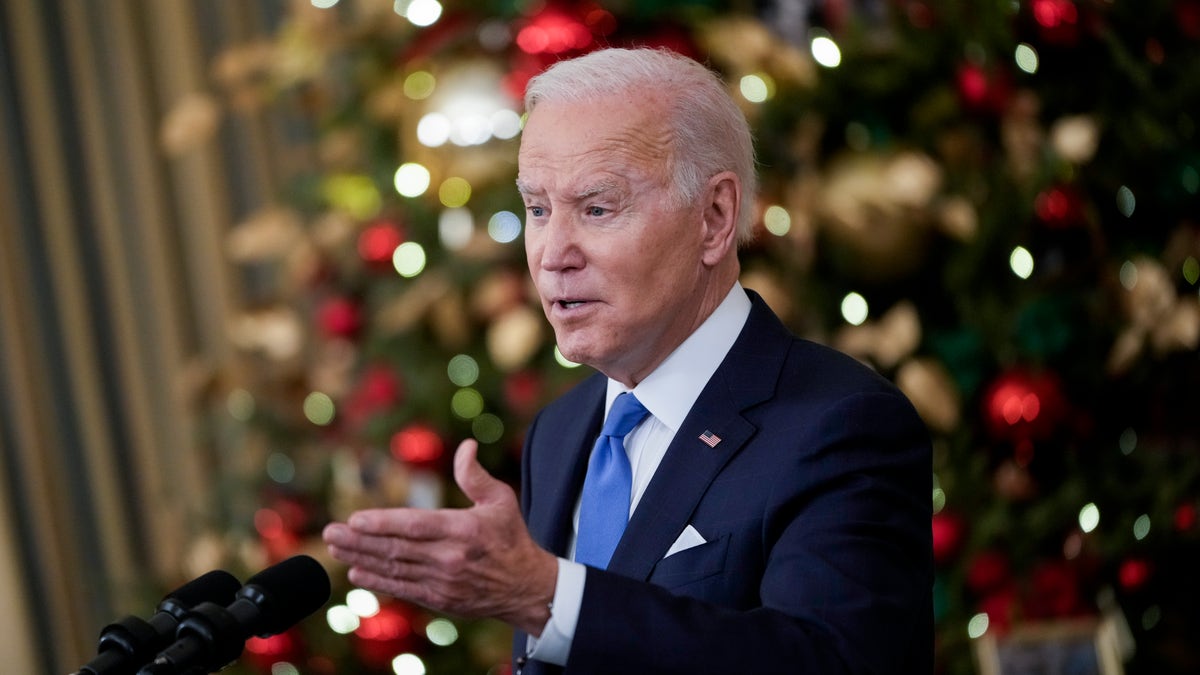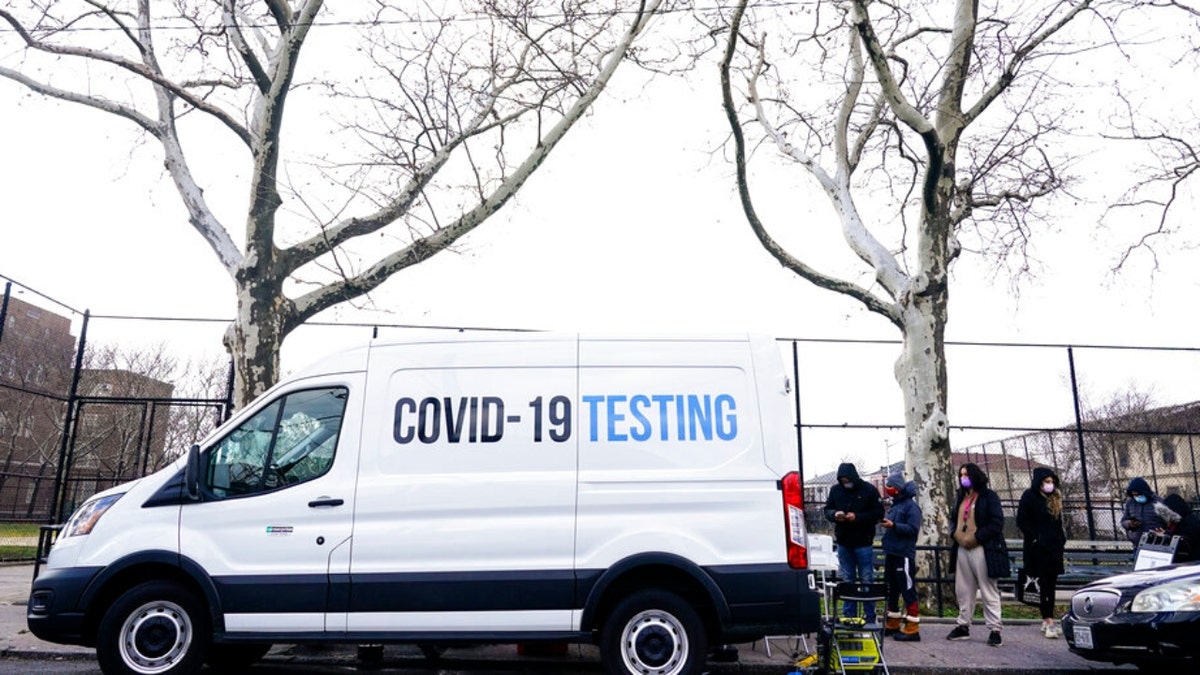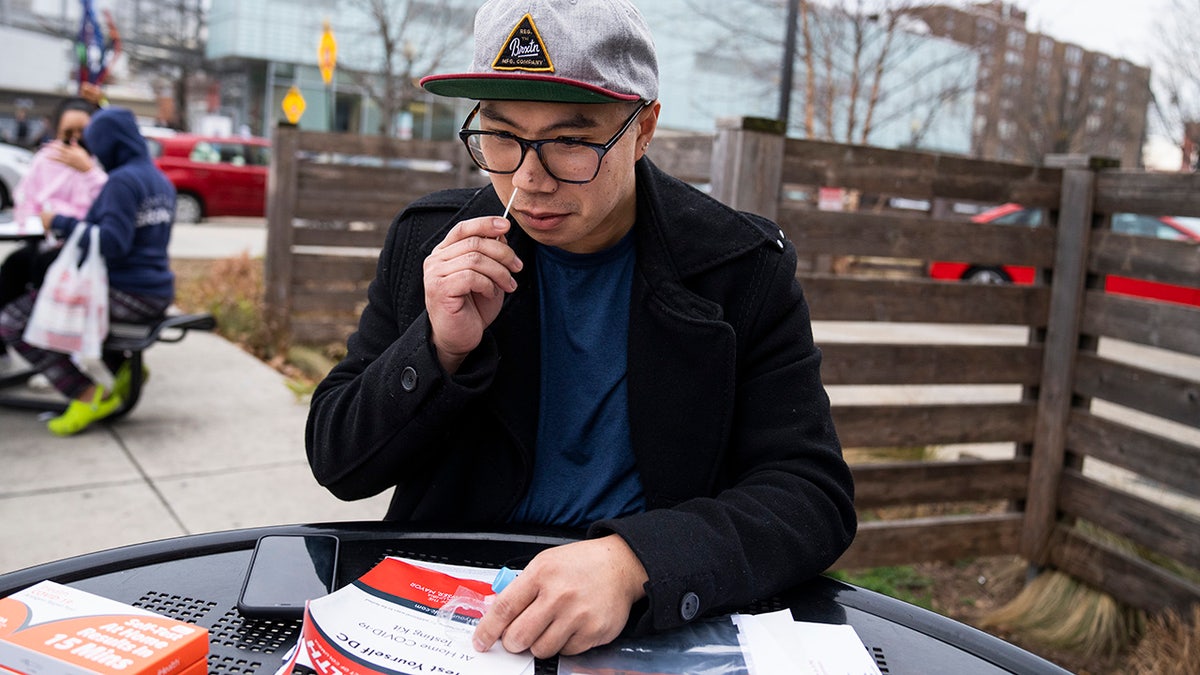Media top headlines January 4
In media news today, comedian Patton Oswalt gets mocked for a lengthy apology after taking a picture with Dave Chappelle, Howard Stern slams Oprah Winfrey for hosting dinner parties amid COVID surge, and Governor DeSantis responds to media criticism that he was missing in December.
A piece published in The Atlantic is urging "privileged" Americans to stop perpetuating the nationwide shortage of coronavirus tests by taking one when it isn't either a requirement or when they aren't experiencing symptoms.
Writer Benjamin Mazer argued Monday that the country was experiencing "the testing version of vaccine equity," and that the healthiest and wealthiest people were disproportionately benefiting from stocking up on large quantities of at-home tests and filling PCR test appointments despite not experiencing symptoms of the virus.
BIDEN ONCE CALLED TRUMP'S COVID-19 TESTING PUSH A ‘TRAVESTY,’ FACES OWN CRITICISM
"Move over mimosas, because America has a fresh New Year’s tradition: struggling to get tested for COVID before returning to school or work," Mazer wrote. "The system failed us: Inadequate public investment in the nation’s testing infrastructure has worsened the congestion. But we can help ease it too—and clear the way for those who have the greatest need for their results—by staying off the road whenever possible."
Mazer argued that President Biden's promise to give away 500 million coronavirus tests this month would help the congestion, but wouldn't resolve the national shortage. He added that, despite feeling outraged, Americans should "behave responsibly" when it comes to deciding to get tested.
"This is the testing version of vaccine equity: the effort to ensure that life-saving inoculations don’t disproportionately benefit the healthiest and wealthiest people," Mazer wrote. "When the same principle is applied to diagnostics, it means that people at the lowest risk from COVID shouldn’t buy up large stocks of at-home tests, or grab PCR appointments when they’re not experiencing symptoms."

President Joe Biden speaks about the omicron variant of the coronavirus from the White House, Dec. 21, 2021. (Drew Angerer/Getty Images)
PHYSICIAN WRITES THAT COVID-19 TESTS SHOULD BE AVAILABLE FOR PEOPLE WHO NEED THEM MOST
Mazer noted that some testing was a requirement, such as for returning to school, travel, or accessing public venues, but that taking them in accordance with visiting family members, except for the elderly, should be optional.
He added that, for now, testing was a "zero-sum game," and that the omicron variant of the virus was already going to be hard to control through winter.
"Each unnecessary swab that you consume means one fewer is available for more important purposes—such as diagnosing a symptomatic infection," he wrote. "We’ve reached a point in the pandemic where diagnostic testing is medically essential."
"It’s never been more important for vulnerable patients to know, as soon as possible, that they’re infected. Sick patients who struggle to obtain an at-home test or have to wait days for a laboratory result might find themselves ineligible for time-sensitive but life-saving interventions," he added, noting recently authorized anti-viral pills used to treat early COVID infections.

People line up for at a CDC mobile COVID-19 testing location Thursday, Dec. 23, 2021, in Queens, New York. (AP Photo/Frank Franklin II)
FAUCI TEASES NEW TESTING RECOMMENDATIONS DESPITE SHORTAGES
Mazer implored Americans to do what they could to free up testing resources for those with actual symptoms, and argued that tests should be allocated based on underlying risks.
"The unvaccinated are, overall, most in danger of being hospitalized and dying from the virus, so they are also, overall, the people who benefit the most from having those around them screened for infection," he wrote, adding that he suspected people with arsenals of at-home tests already spent most of their time around vaccinated or other low-risk individuals.
He pointed out the drastic difference in testing older or immunocompromised people and the largely healthy students attending universities, noting there wasn't much effort to test the former while the latter was subject to thousands of tests a day across the country.
"It’s true that testing low-risk people can break infection chains that eventually reach the more vulnerable, but this will be of little consolation to susceptible community members who can’t even ensure that their direct contacts have been cleared of infection," he wrote.

Aaron Salvador swabs his nose with a COVID-19 rapid antigen test kit outside the Watha T. Daniel-Shaw Neighborhood Library in Washington, D.C., on Wednesday, Dec. 29, 2021. (Tom Williams/CQ-Roll Call, Inc via Getty Images)
Mazer implored public-health experts to lead the charge toward "thriftiness," and admitted that he himself, a "privileged" person, had stocked up his own stash of test kits.
"Given the reality of our testing shortages, it’s time we started cutting back, where and when we can," he wrote.









































